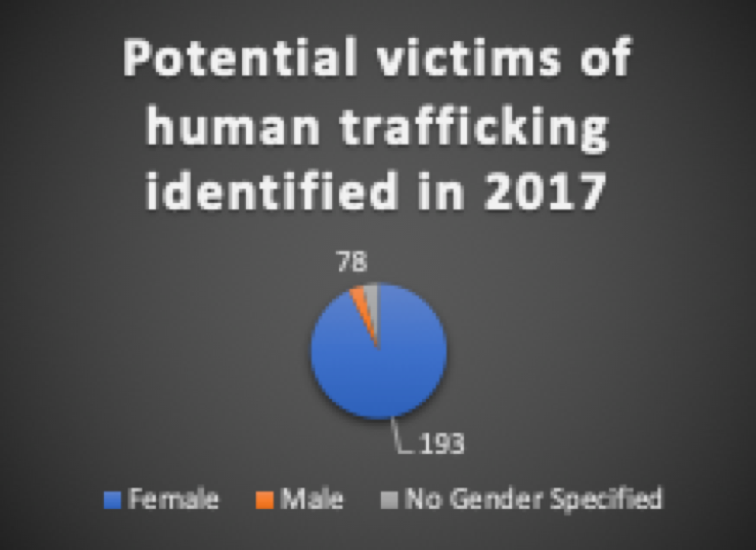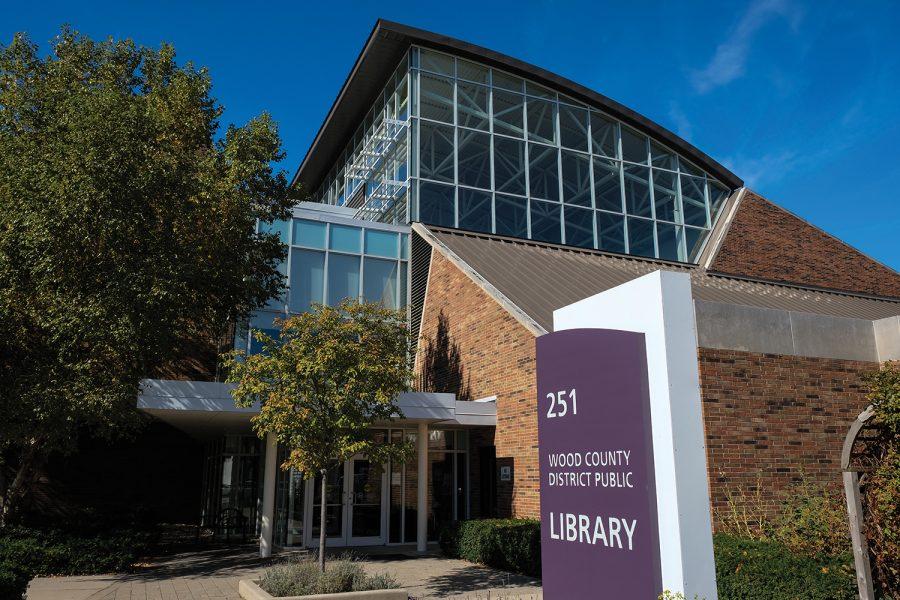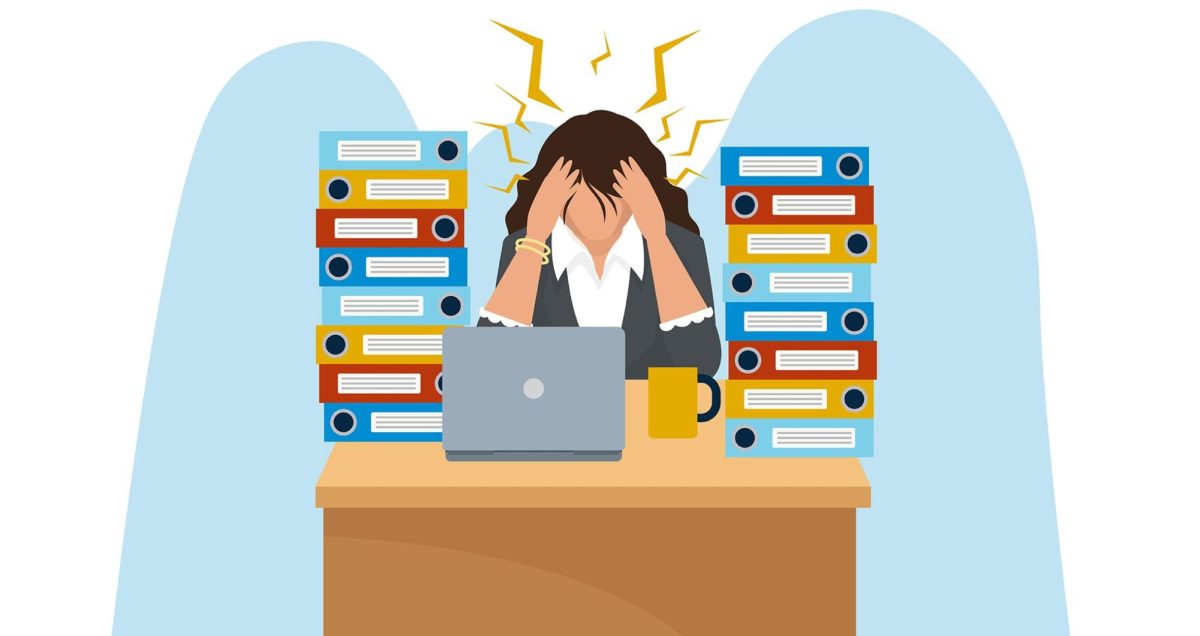“Sex is on everyone’s mind,” Lara Lengel, a professor in communication at the University, said. When it comes to people being exploited by human traffickers, the problem is a lot of people think it is mostly sex workers; however, most are trafficked for labor and indentured servitude, Lengel said. The conditions these people face in the work they find are inhumane and conditions comparable to slavery Lengel said, calling it “a complex and diverse industry.”
Lengel pointed out the health risks involved for those in human trafficking. For people who are performing sex work for those who traffic them, the threat of physical violence is a way traffickers and pimps assert their control over their victims. Lengel said the term “pimp” was too kind because she considered their actions the equivalent of modern-day slavery.
“It can’t happen here,” Lt. Angel Burgos, Bowling Green post commander for the Ohio State Highway Patrol, said. Many people do not think human trafficking happens in our local communities, Burgos said. He added it takes everyone to combat human trafficking. The law plays a game of cat and mouse with smugglers, where every time the smugglers employ new tactics, the law tries to adapt, Burgos said. He credits constant training to keeping up with the criminals on the interstate.
Burgos said people who are trafficked, notably in the sex rings, are branded with the initials of their supposed owner. The victims are threatened physically and in many cases are made addicted to drugs or some other kind of dependency to keep them under the control of their “owners.”
According to the Ohio Attorney General’s Office — in its annual report in 2017 for the state of Ohio — drugs, alcohol, or other dependency were the highest cited factors contributing to a victim being trafficked.
Intimidation, physical abuse and drug addictions are not the only means traffickers employ on their victims, Burgos said. But mental conditioning is applied to the victims as well.
“They become so entrenched, they fear interacting with the law,” Burgos said.
Burgos said some who find themselves in human trafficking and are addicted to the drugs given to them by their captors show extreme signs of drug use. He said in the line of duty, he has come across several victims who might have a driver’s license from one to two years ago, and the changes occurring to the victims make it seem like they aged 30 years.
This control created from drug use makes the task for law enforcement especially difficult as it can make it harder to get the cooperation from victims in pointing out their traffickers.
“Victims blame their selves (sic) for getting into the situations they are in,” Burgos said, and when the police try to comfort the victims after they are rescued from traffickers, often female officers try to comfort them.
“They (traffickers) threaten them (victims), their friends and their family. The last one is what usually really controls the victims,” Burgos said. Traffickers use — what he called false hope and bait — to bring victims into the human trafficking network. Social networking is a tool used by traffickers to lure in their victims, and to find their customers.
“They recruit in malls and in high schools,” Burgos said.
Part of the training a state trooper has to undergo is human trafficking training.
“Every trooper has training,” Sgt. Nathan Henn, patrol trooper for the Ohio State Highway Patrol said. He compared some signs of human trafficking with domestic violence because of some of the similarities, physical or emotional abuse, the reluctance of the victim to come forward, and a feeling of being entrenched with their trafficker or abuser.
To the benefit of fighting human trafficking, Burgos said the world is becoming smaller with social media and the internet. Traffickers use these tools — but so does law enforcement, and social media also increases the possibility of civilians aiding the law.
“Picking up the phone really works,” he said. Regarding people who feel concern about reporting what they see, Burgos said they can call-in or email tips anonymously.
Lengel suggested people as consumers have a role to play in the fight against trafficking.
“Be an informed consumer, to deal with companies that treat people better, and pay actual wages,” Lengel said.
VIA data from the Ohio Attorney General's Office’s 2017 Human Trafficking Commission Annual Report.














